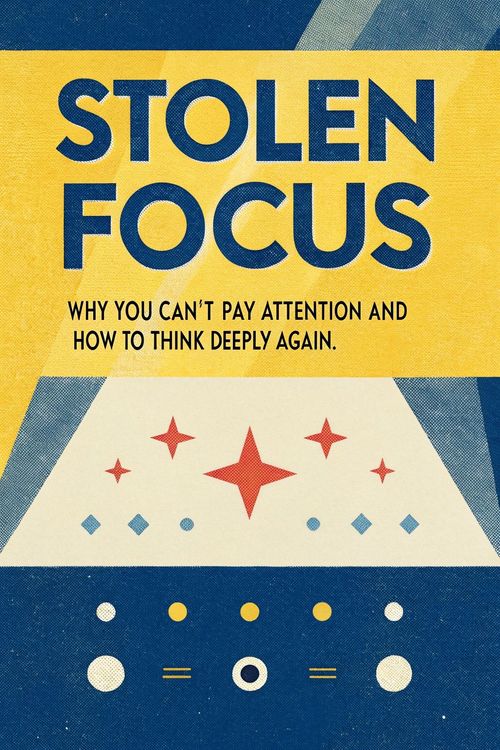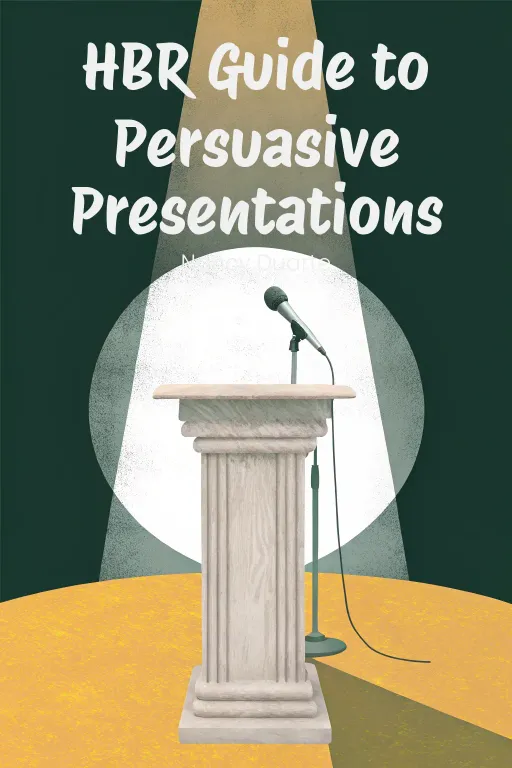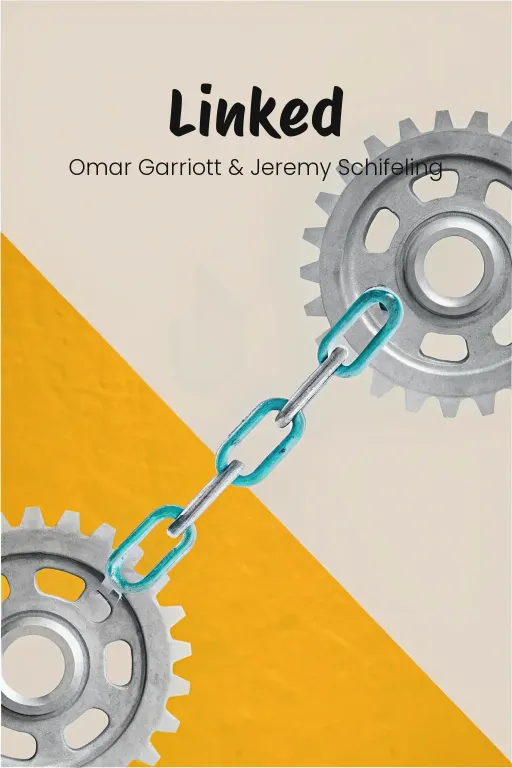
Talk Better: Build a Better World
Podcast by Beta You with Alex and Michelle
Using Appreciative Inquiry to Fuel Productive and Meaningful Engagement
Introduction
Part 1
Alex: Hey everyone, welcome back! Let me kick things off with a question: when was the last time you walked away from a conversation feeling genuinely energized? I mean, truly inspired to see things differently or actually do something? Michelle: Yeah, or on the flip side, how often do we find ourselves stuck in those same old ruts? You know, the complaint sessions, the blame-storming, or those soul-crushing status meetings that just drain the life out of you? Alex: Exactly! Well, today we're tackling a book that completely rethinks the idea of “conversation.” It's called Conversations Worth Having by Jackie Stavros and Cheri Torres, and it's all about how the right kind of dialogue can transform… well, everything! Relationships, workplaces, even entire communities. Michelle: And their secret weapon? Something called Appreciative Inquiry, or AI. And no, not the robot kind; we're not talking Skynet taking over your team meetings, don't worry. Alex: Right, AI here is a way of looking at things that puts curiosity first, emphasizes teamwork, and focuses on what’s working well instead of just picking apart problems. The authors give us the tools to shape our conversations so they spark creativity, build connections, and even lead to real, measurable results. And they do it with hands-on techniques and stories from the real world, too. Michelle: Okay, so lay out the plan for us here. What are we going to dig into today? Alex: Good question! We're going to break it down into three parts. First, the core ideas behind Appreciative Inquiry – what “really” makes a conversation “worth having?" Then, we'll jump into some compelling, real-world examples – teams that turned total chaos into collaborative success. And finally, we’ll look at how you can scale this stuff up, showing how even small tweaks in how we communicate can ripple outwards and transform any organization or group." Michelle: So, basically you’re saying we can turn every blah meeting into a TED Talk? Ambitious stuff! Alex: Hang with us, and you might just see every interaction in a whole new light. So, let's dive in, shall we?
Appreciative Inquiry (AI)
Part 2
Alex: Okay, let's jump right into Appreciative Inquiry, or AI, and its core five principles. Think of these as the foundation for turning every conversation into a positive change-maker. Michelle: Five principles, huh? Sounds intense already. I'll try to keep my cynicism in check... for now. Alex, lead the way. Alex: First, we have the “Constructionist Principle”. It basically says our language isn't just describing reality, but actually building it. Michelle: Wait a minute. Are you saying words aren't just labels, but like little construction tools shaping everything? Alex: Exactly! Imagine two teachers and one student, Jamal. Ms. Summers keeps pointing out his mistakes, calls him a troublemaker. Eventually, Jamal and everyone else believe it. Now, Ms. Wittit sees Jamal's potential as a leader. She talks about his strengths, helps him use his energy positively. Same Jamal, right? Totally different outcomes just based on how the teachers talk about him. Michelle: So, Ms. Summers is building Jamal a brick wall, and Ms. Wittit's building, like, a staircase of opportunities? Alex: I love that image! It shows how powerful reframing can be. When you focus on someone's potential instead of their flaws, you open up a whole new world of possibilities. Michelle: Alright, I get it. Words build worlds. What's next on the list? Alex: Then there's the “Simultaneity Principle”. This one suggests that change starts the minute we ask a question. It's not some future thing; it's happening right now. Michelle: So, asking "Why is everything going wrong?" probably makes things worse. But asking, "What's working well, and how can we do more of that?" shifts the energy, right? Alex: Absolutely. Take Alisha Patel, a hospital administrator with low patient satisfaction scores. "Why are we failing?" brought defensiveness. But "What's a great patient care story from this week?" sparked immediate positive energy. People shared successes, and that created better teamwork and lifted everyone's spirits. Michelle: So, lead with hope, not despair. It's like a Jedi mind trick for, you know, real life. Alex: Exactly! Which brings us to the “Poetic Principle”. I love this one. It compares life to a poem, always being written and rewritten. Michelle: "Life's a poem"... Deep stuff. Are we about to break into spoken word? Alex: Not quite, but think of it this way. If you're stuck seeing a situation in one way - a bad employee, a failing project - you're missing chances to reframe it. Ms. Wittit could've seen Jamal as a lost cause, just like Ms. Summers. Instead, she rewrote his story by seeing his leadership abilities. That's the Poetic Principle at work. Michelle: So, our situation is basically a rough draft, and we can edit it based on how we see it? Alex: Precisely. What's cool about this is how it reminds us that people and situations have many layers. By changing your perspective, you find possibilities you never noticed before. Michelle: Okay, so I'm the creative director of my own existence. I can dig it. What's principle number four? Alex: That's the “Anticipatory Principle”, which is all about expectations. What we expect, good or bad, tends to influence the outcome. Michelle: So, it's like the self-fulfilling prophecy, but in a fancy suit, right? Alex: Pretty much. There's a great story about Ravi, a tech leader, who pitched a new project to his team, expecting everyone to agree. When they had critical comments, he shut them down. His negative expectations killed the creativity that could've made the project great. Once he realized his mistake, expected real teamwork, he welcomed their ideas and transformed the team--which, in turn, improved the project outcomes. Michelle: Got it. Expectations set the tone. Expect doubt, get resistance. Expect trust, get buy-in maybe. Alex: Exactly. And the fifth principle ties it all together: the “Positive Principle”. Michelle: Sounds straightforward... Just be positive, and everything's great? Alex: It's deeper than that. It says that focusing on strengths and success creates energy that fixing problems never will. Alisha at the hospital—she moved away from dissecting failures and started celebrating wins, asking her team to share great moments with patients. That energy lifted the whole organization. Michelle: So, instead of putting out fires, you're riding the wave of, you know, what's already working? Alex: Exactly. When you switch from talking about what's broken to what's possible, you create an environment where people feel inspired to give their best. Michelle: Alright, Alex, let me see if I've got this. Language shapes reality, questions start change, reframing opens doors, expectations guide results, and positivity fuels momentum. Did I just pass the AI exam? Alex: A+ for sure, Michelle. Now that we've got the principles down, let's look at how to put them into action with some, like, actual strategies and tools.
Practical Applications of AI
Part 3
Alex: So, we've laid out the principles, now let's talk about how they translate into real-world impact. AI isn't just some abstract idea; it’s incredibly practical. Think of it as a set of tools for revitalizing individual interactions, team relationships, even entire companies, into vibrant, energized systems. From what we’ve seen, the applications naturally progress: you start with individuals, then move to teams, and finally, larger organizations. Michelle: It almost sounds too good to be true, though, doesn’t it? Like we're talking about duct tape or something – universally applicable, just slap it on any problem. Alex: Well, what’s great about AI principles is how adaptable they are. Let's start with individuals and then build up from there. Remember Alisha Patel from the case study? Michelle: Ah, yes. The hospital administrator in crisis mode. Low patient satisfaction, high stress – sounds like a party. Alex: Alisha's story really highlights how even a subtle shift in conversation can spark major change. Instead of, you know, grilling her team about what went wrong, she asked them to share their best patient care experiences. And that's when things really started to shift. The energy in the room completely changed. People started smiling, sharing stories – they felt seen, valued. Michelle: So, instead of the blame game, she basically held up a mirror and said, "Show me what you're good at." Alex: Exactly. And here’s the interesting part: that reflection actually built energy. As team members shared their successes, they were, unknowingly, highlighting what they did best, and those insights then became part of their routines. Over time, those small adjustments – all stemming from that one reframed conversation – led to real improvements in satisfaction and morale. Michelle: So, the takeaway isn't just "be nice to your employees," I assume? Alex: Not at all. The actual tools she used – namely, “positive framing” and “generative questions” – made all the difference. Asking, "What worked well?" directs the focus toward strengths that can be built upon, rather than dwelling on failures. Michelle: Okay, let's move up a level – how does this scale to teams? Alex: Teams bring a new layer because you’re not just influencing one person; you’re trying to get multiple voices aligned. Take the Michigan Strategic Planning Session, for instance. You had 34 employees who needed to come together and somehow create a unified vision for their organization. Michelle: Let me guess: they used AI to turn that mess into synergy? Alex: Exactly. They worked through what we call the “5-D Cycle”: Define, Discover, Dream, Design, and Deploy. Think of these phases as a roadmap. Michelle: Okay, hold on. Give me the quick breakdown of these phases. Why are there so many D's? Alex: <Laughs> Fair question! So, Define sets the focus: What are we trying to achieve here? Discover uncovers strengths: What do we do well right now? Dream is about aspiration: What’s our ideal future? Design is collaborative: How do we get there? And Deploy is all about putting that plan into action. Michelle: Got it. Start with what you have, dream big, make a plan, and then go build it. Alex: Precisely, but the magic is really in how those phases unlock creativity. During the Dream phase, for example, participants created posters, told stories, and even acted out skits to illustrate their vision. Instead of just sitting around criticizing current problems, they were laughing, engaging, and co-creating a new future. Michelle: So, PowerPoint slides were replaced with improv. I can only imagine the energy. But beyond just having fun, were there actual results? Alex: Absolutely. By the end of the session, they had developed clear initiatives – things like mentorship programs and innovation hubs. And it wasn't just theoretical; within 90 days, employee morale, productivity, and communication had all noticeably improved. Michelle: So they left the meeting with actual marching orders, born out of collaboration. I like that – it’s more than just feel-good stuff. Alright, let’s go even bigger. What about applying this to entire organizations? Alex: For that, look at the example of Community One Bank after the 2008 financial crisis. The bank wasn't just facing economic turmoil; there was also a real breakdown of trust among its employees. Kamal and Mary, who were leaders there, used AI to rebuild unity – even as the bank was heading toward its eventual closure. Michelle: Wait, closure? So, they couldn't save the business, but they managed to keep morale up? Alex: Exactly. Kamal didn't focus on the impending failure. Instead, he started asking employees like Elizabeth – who had been with the bank for years – about her proudest moments working there. By asking those kinds of generative questions, he honored the values and legacy of the organization, reminding employees of their resilience and sense of purpose. Michelle: That takes guts as a leader – to focus on pride when everything's falling apart. Alex: And that empathy created mutual trust. Even as people were facing job losses, they felt respected and cared for. When the closure finally happened, employees left with a sense of dignity, not bitterness, and they credited those honest and appreciative conversations. Michelle: So, AI isn't just about saving the day. Sometimes it's about helping people find grace, even when things can't be saved. Alex: Precisely. And that’s what makes AI principles so profound. Whether you're dealing with personal relationships, team dynamics, or organizational crises, these tools can work. Things like positive framing, storytelling, and asking generative questions – they’re not just techniques; they’re ways of reconnecting people with their strengths, and that fosters engagement and progress, regardless of the situation. Michelle: Alright, Alex, you've convinced me – AI is more than just corporate speak. It's like conversational alchemy, turning tough moments into opportunities. Alex: A fine metaphor indeed! Now that we’ve explored cases, let’s shift gear slightly to the“how.” What practical methods can listeners take straight from this playbook?
Scaling and Sustaining Positive Conversations
Part 4
Alex: So, these practices don't just make individual interactions better, they actually scale up and can shift entire cultures. That's where we're headed now. We're talking about how positive conversations go beyond single events and start to create real systemic and cultural change. We're going to explore tools, ways of doing things, and even organizational structures that keep this positive momentum going over time. Michelle: So, you're saying this conversational magic isn't just a one-off for a brainstorming session, but it becomes baked into the company culture? It's like the new operating system? Alex: Exactly! Scaling and sustaining positive conversations means embedding these practices deep into an organization's very essence. The text really nails it, starting with tools that promote continuous growth, like "feedforward" methods. Michelle: "Feedforward," huh? So, we're ditching the rearview mirror for windshields, right? How does that actually work in practice? Alex: Okay, let's take a real-world example: a tech startup that swapped out traditional performance reviews for feedforward sessions. The goal? To avoid the defensiveness that comes with criticism and focus on future growth instead. Imagine Sarah, a project manager who struggled with delegating tasks. Michelle: Delegation—the eternal struggle. So, did they just hand her a book on management techniques? Alex: Not quite. Instead of pointing out her shortcomings, her team asked a question to spark ideas: "What steps could Sarah take to equip the team for greater success in sharing responsibilities?" By framing it that way, the team moved past blame and started co-creating solutions. Sarah ended up with concrete things to do—like running tutorials and empowering teammates to take ownership. Michelle: And I bet that changed everything, right? Alex: Absolutely. The atmosphere shifted over time. Sarah got better at delegating, her team felt more confident, and they cut down on project delays in a big way. The focus wasn’t on "fixing" a problem, but on building possibilities together. Michelle: So, instead of assigning blame, the team became co-pilots. It’s like turning "constructive criticism" into "constructive curiosity." Alex: Exactly! And that's just the start. We also have the power of reflection and storytelling within teams—practices that solidify these changes to become a lasting part of the culture. Michelle: Storytelling? Is this where someone stands up and says, "Let me tell you about the time I charmed a client into closing a deal?" Alex: Well, it's a bit deeper than that. Take a sales team at a big company. They were struggling with internal divisions and poor results. So, leadership started making storytelling a regular part of their monthly meetings. Each person shared a story about overcoming a challenge, linking it back to team values like resilience. Pedro, a senior rep, told this great story about saving a deal by rebuilding trust after a shipment delay. Michelle: And Pedro's tale of heroism—did people actually buy into it? Alex: Big time. His authenticity not only inspired his colleagues in a big way, but also gave them concrete tactics for dealing with their own setbacks. Storytelling broke down the barriers, and the whole team felt more connected. Within months, internal surveys showed way more collaboration and engagement—over 30% more, actually. Michelle: That makes sense. Sharing those personal wins becomes a form of collective problem-solving. It turns the "I" into "we." Alex: Exactly. Now, imagine amplifying that same spirit with our third piece—generative questions. These are open-ended questions that energize the conversation and point it in a helpful direction. Remember our Michigan strategy planning example? Michelle: Oh, yeah. Michigan—where 34 people came together to build a vision without starting a war. How did generative questioning play a part? Alex: Well, rather than asking, "What's broken in our strategy?" they asked, "What values have helped us succeed, and how can we build on them?" Suddenly, people shared ideas that were new and innovative. By the end, they'd come up with action steps - mentorship programs, innovation teams spanning multiple departments, etc. - that had the whole organization buzzing. Michelle: Got it, so it's not about spotting problems or patching holes—it's about designing a bigger, better ship to sail. Is the last piece taking those ideas and scaling them across the whole organization? Alex: Precisely. This is where systemic integration comes in. Think about Erich and his technology center in Michigan. His team made use of the AI “5-D Cycle”—Define, Discover, Dream, Design, and Deploy—as a way to unify an international workforce. Beginning with the things they had in common, they identified shared strengths and hopes, and they worked systematically towards implementing habits that valued adaptability and openness. Michelle: So, this wasn't just a touchy-feely workshop. It had lasting effects, I assume? Alex: Absolutely. By baking these practices into how they planned and collaborated, the technology center underwent a real cultural shift. Employees said they felt valued and engaged, even across cultural and geographic lines. Michelle: And that's the key word—engagement. People don't just show up; they show up fully. It's about turning those moments of "this is worth it" into the norm. Alex: Exactly. So whether it's feedforward feedback, storytelling, generative questions, or systemic integration—all of these tools make sure that positivity and collaboration don't just become passing fads. They get woven into the daily fabric of organizations, building resilience, trust, and continuous growth.
Conclusion
Part 5
Alex: Okay, so to bring it all together, we've really dug into how conversations are so much more than just swapping words. They're about making connections, opening up new avenues, and influencing culture, right? Appreciative Inquiry really highlighted that the way we use language, the questions we ask, and the stories we tell can dramatically affect how we interact with each other, not just on a personal level, but within teams and even across whole organizations. Michelle: Right. So it all comes back to those five core ideas: that our language shapes our reality, questions drive change, we can always shift our perspectives, our expectations influence results, and positivity “really” powers success. Whether you're trying to change one person's thinking or restructure a whole company, these approaches show that how we communicate is how we build things up. But let me ask, Alex, have you seen these principles “really” make a tangible difference in the real world? Alex: Absolutely, Michelle! I've seen it in team meetings transformed from gripe sessions into brainstorming opportunities, and in personal relationships strengthened by focusing on what's strong rather than what's wrong. Michelle: Gotcha. Alex: And for our listeners, the “real” takeaway here is to start paying attention to the vibe your conversations are creating. Are your words creating barriers, or are they unlocking opportunities? Try playing around with questions that encourage growth, like, "What's going well?" or "What could we achieve?" And just watch how that changes the dynamic. Michelle: So, it’s not just about the words themselves, is it? You have to “really” reflect on them, share stories that matter, and make these habits a regular part of your life. I guess you never know, right? You might not just make your conversations better, you could start something bigger that changes your team, your company, maybe even your community. How would someone apply this to modern urban life, you know? Alex: Exactly! Start small, maybe by initiating a "strengths spotlight" during team meetings where each person shares something they appreciate about a colleague's work. Or, use generative questions during your next family dinner to steer the conversation towards dreams and aspirations rather than daily complaints. And remember, success stories are contagious. Share how these practices have positively impacted your life and inspire others to give it a shot. Michelle: So positive change “really” does start with a simple change in how we talk and listen. Let's try to make those changes thoughtful, innovative, and productive. After all, every major transformation begins with a conversation that's truly worthwhile, doesn't it? So, thanks for the insights, Alex! Where can our listeners find more about Appreciative Inquiry and these methods we've discussed?









